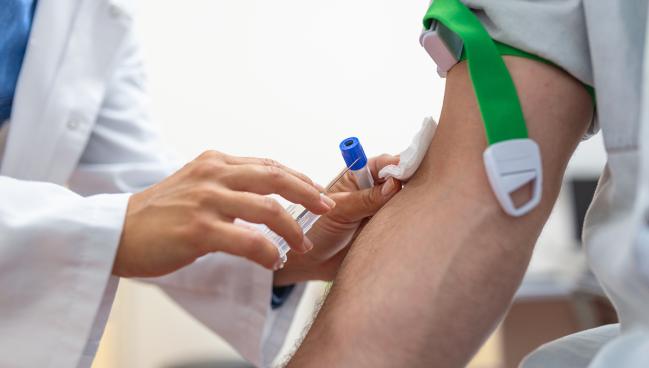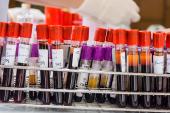Inconsistent Troponin Testing in US EDs Warrants Closer Look
New data from US centers suggest some overtesting in patients without chest pain, and undertesting in those who do.

Recent data from US emergency departments (EDs) suggest that use of cardiac biomarker testing to identify ACS needs to be better refined, particularly the seemingly default practice of testing even people without chest pain.
Between 2014 and 2022, 7% of patients who visited an emergency department had their troponin or creatine kinase-MB measured, regardless of why they were there, with no significant change in that proportion over time, according to researchers led by Cian McCarthy, MB, BCh (Massachusetts General Hospital and Harvard Medical School, Boston, MA).
About two-thirds of patients tested did not have chest pain, and in this group, fewer than 2% ultimately received an ACS diagnosis, “a threshold below which the harms of evaluating for myocardial infarction may outweigh the benefits,” they report in a research letter published online Monday in JAMA Internal Medicine.
“A big thing to consider here is that on one hand, we don’t want to be missing MIs . . . but at the same time, I think overtesting also has its downsides, including cascade testing, keeping patients in the emergency department for longer, causing ED overcrowding, and unnecessary testing, like invasive angiography, which has risks,” McCarthy told TCTMD.
Even among those who presented with chest pain, only about one-quarter (25.6%) had their cardiac biomarker levels assessed, a number that seems a bit low, said McCarthy. “We may be undertesting patients with chest pain, and we may be overtesting patients with no chest pain.”
To provide recent data on how cardiac biomarkers are being tested in US emergency departments, the investigators turned to the National Hospital Ambulatory Medical Care Survey, examining 97,085 ED visits (a weighted total of nearly 732 million) between 2014 and 2022.
Roughly half of those visits (52.4%) involved some type of laboratory testing. Despite a transient bump in the proportion of patients who had their cardiac biomarkers tested at the beginning of the COVID-19 pandemic, there was no significant change over the course of the study (P = 0.22 for trend). Overall, troponin or creatine kinase-MB testing was more common in older adults and men.
We may be undertesting patients with chest pain, and we may be overtesting patients with no chest pain. Cian McCarthy
An ECG was performed during 27.1% of ED visits, and of these encounters, 22.2% involved cardiac biomarker testing, too.
The investigators divided patients into three categories according to their reason for visiting, and among those who underwent testing of their cardiac biomarkers, patients had:
- Chest pain (34.7%)
- Non-chest pain anginal equivalent symptoms, like shortness of breath or nausea (39.3%)
- No anginal symptoms (26.0%)
For patients without anginal symptoms, factors associated with cardiac biomarker testing included having an abnormal vital sign like hypotension (OR 4.13; 95% CI 1.52-11.20), Asian versus white race (OR 2.61; 95% CI 1.57-4.36), and cerebrovascular disease (OR 2.03; 95% CI 1.68-2.44).
ACS was ultimately diagnosed in 2.8% of patients who did not have their cardiac biomarkers assessed, with this proportion remaining relatively steady over time (P = 0.70 for trend). That diagnosis was more frequent among those with chest pain (5.6%) than in those with non-chest pain anginal equivalent symptoms (1.1%) or no anginal symptoms (1.5%).
The researchers note that they lacked granular cardiac biomarker data and could not determine the appropriateness of either testing or ACS diagnoses.
Nonetheless, they say, “the study data suggest refinements in cardiac biomarker testing strategies are needed to optimize ACS diagnosis.”
How to accomplish that is a tricky question without a clear answer, McCarthy said.
Use of machine learning to better incorporate patients’ demographics and comorbidities in the assessment of their risk for ACS could be helpful in guiding decisions around cardiac biomarker testing, he suggested.
“But in general, I think we just need to be careful to not overtest everyone coming into the emergency department with troponin and be really thoughtful as to whether this patient may have acute coronary syndrome or not,” McCarthy said.
Todd Neale is the Associate News Editor for TCTMD and a Senior Medical Journalist. He got his start in journalism at …
Read Full BioSources
McCarthy CP, Watson NW, Wasfy JH, et al. Cardiac biomarker testing in US emergency departments. JAMA Intern Med. 2025;Epub ahead of print.
Disclosures
- McCarthy reports receiving a grant from the National Heart, Lung, And Blood Institute and personal fees from Roche Diagnostics, Abbott Laboratories, NewAmsterdam Pharma, and HeartFlow outside the submitted work.






Comments